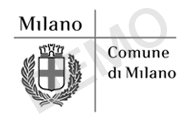“Don’t, dear!” said my wife, knitting her brows and putting her hand on mine. “Poor Ogilvy!” I said. “To think he may be lying dead there!” My wife at least did not find my experience incredible. When I saw how deadly white her face was, I ceased abruptly. “They may come here,” she said again and again. I pressed her to take wine, and tried to reassure her. “They can scarcely move,” I said. The atmosphere of the earth, we now know, contains far more oxygen or far less argon (whichever way one likes to put it) than does Mars. The invigorating influences of this excess of oxygen upon the Martians indisputably did much to counterbalance the increased weight of their bodies. And, in the second place, we all overlooked the fact that such mechanical intelligence as the Martian possessed was quite able to dispense with muscular exertion at a pinch. But I did not consider these points at the time, and so my reasoning was dead against the chances of the invaders. With wine and food, the confidence of my own table, and the necessity of reassuring my wife, I grew by insensible degrees courageous and secure. “They have done a foolish thing,” said I, fingering my wineglass. “They are dangerous because, no doubt, they are mad with terror. Perhaps they expected to find no living things–certainly no intelligent living things.” “A shell in the pit” said I, “if the worst comes to the worst will kill them all.” The intense excitement of the events had no doubt left my perceptive powers in a state of erethism. I remember that dinner table with extraordinary vividness even now. My dear wife’s sweet anxious face peering at me from under the pink lamp shade, the white cloth with its silver and glass table furniture–for in those days even philosophical writers had many little luxuries–the crimson-purple wine in my glass, are photographically distinct. At the end of it I sat, tempering nuts with a cigarette, regretting Ogilvy’s rashness, and denouncing the shortsighted timidity of the Martians. So some respectable dodo in the Mauritius might have lorded it in his nest, and discussed the arrival of that shipful of pitiless sailors in want of animal food. “We will peck them to death tomorrow, my dear.” I did not know it, but that was the last civilised dinner I was to eat for very many strange and terrible days. The most extraordinary thing to my mind, of all the strange and wonderful things that happened upon that Friday, was the dovetailing of the commonplace habits of our social order with the first beginnings of the series of events that was to topple that social order headlong. If on Friday night you had taken a pair of compasses and drawn a circle with a radius of five miles round the Woking sand pits, I doubt if you would have had one human being outside it, unless it were some relation of Stent or of the three or four cyclists or London people lying dead on the common, whose emotions or habits were at all affected by the new-comers. Many people had heard of the cylinder, of course, and talked about it in their leisure, but it certainly did not make the sensation that an ultimatum to Germany would have done. In London that night poor Henderson’s telegram describing the gradual unscrewing of the shot was judged to be a canard, and his evening paper, after wiring for authentication from him and receiving no reply–the man was killed–decided not to print a special edition. Even within the five-mile circle the great majority of people were inert. I have already described the behaviour of the men and women to whom I spoke. All over the district people were
User Login

Norme sulla Privacy
Norme sulla Privacy










